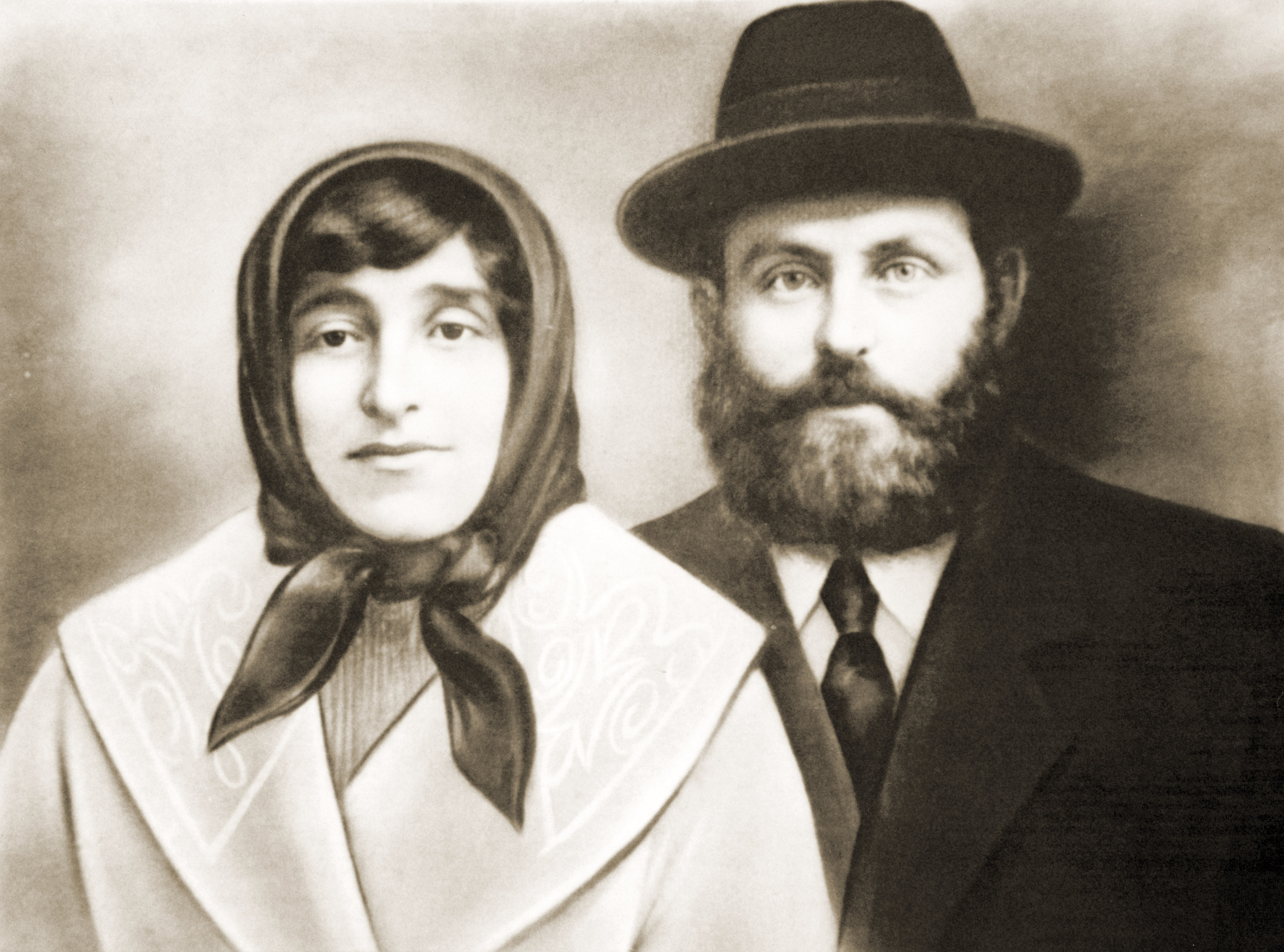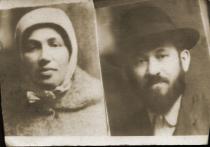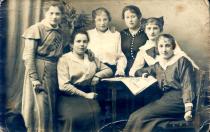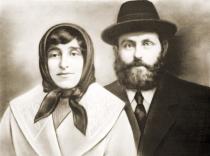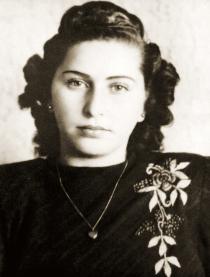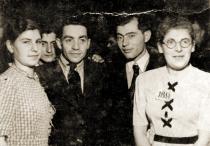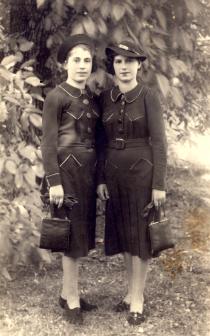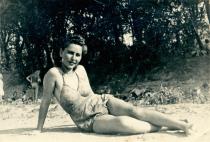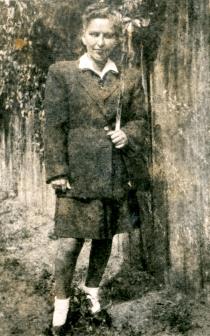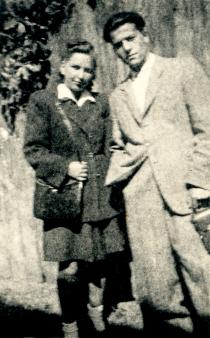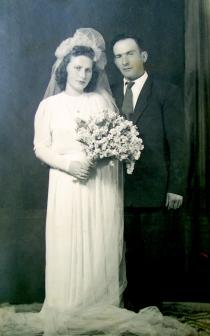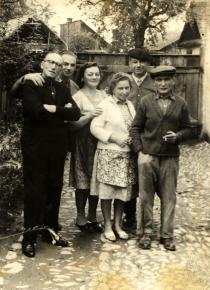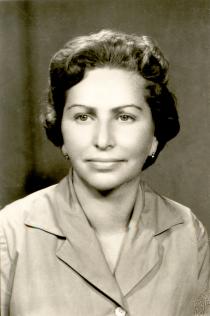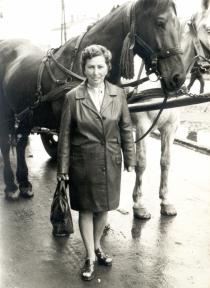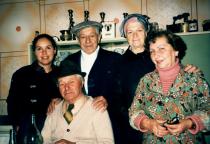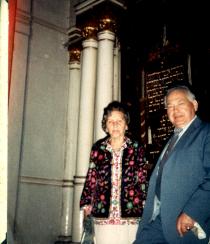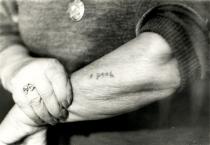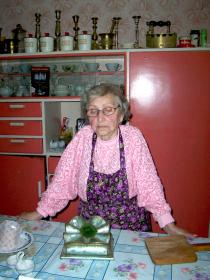This is my father, Izidor Malek and my mother, Berta Malek.
My father's name was Izidor Malek, Ezra in Jewish.
I don't know precisely when my father was born, but he must have been 3 or 4 years older than my mum [so he must have been born in the 1880s].
He was born in a village, Jod. Both my dad and his younger brother, Avrom Malek attended the yeshiva in Pozsony [see: The Yeshiva in Pozsony], in the Czech Republic [the interviewee refers to the first Czechoslovak Republic].
So they were religious, we were regarded as religious Jews. My dad had a short beard, his brother was bearded too, they also had payes.
My parents were first cousins. Dad attended the university in Pozsony, in the [First] Czech Republic, the Jewish university, the yeshiva, and when he came home from there, he always visited mum, he was courting her.
The two grandmothers were delighted about this, as they wanted a religious couple.
This was permitted by the religion. And none of the children were disabled; they were beautiful, healthy children.
One must not marry his aunt, the religion prohibits it, but not the cousin, one can marry a cousin.
My mother's name was Berta Walter, her Jewish name was Bajle, but everybody called her Berta.
She was born here, in Sziget, in 1889. Her hair was cut short too, but she left some on the forehead, which was showing when she put on a shawl.
She also had a wig, but she didn't put it on at home, just in the synagogue, there she put on a turban or a little hat.
Yet my older sister didn't want to cut off her hair when she got married, she was wearing a shawl only.
My mother had seven children, though she could have had more.
She could have had 11 children, but one them died, a girl called Rozika, she got suffocated because of a bean, she put it up in her nose, it swelled up there, and she got suffocated.
She was at my grandmother on the father's side, my grandmother was shelling beans, the child was playing with them, grandma was busy, she didn't pay attention, and when she noticed what happened, and took her to the doctor to take out the bean it was too late.
This sister of mine had died before I was born, she must have been two years old.
And my mother also had miscarriages, the babies weren't born. I heard them speaking about this at home, she could have had 11 [children]. And seven left alive.
We spoke at home Hungarian and Yiddish. My grandmother on the mother's side didn't speak Hungarian, she was speaking Jewish [Yiddish].
But we spoke Hungarian, because mum and dad went to school in the Hungarian era [in the time of the Austrian-Hungarian Monarchy], they spoke a very good Hungarian, but they didn't speak perfectly Romanian.
They were reading the Hungarian newspaper - as they couldn't understand the Romanian one - and Hungarian books.
There was a printing house here in [Maramaros]Sziget, there were two of them in fact, we had Romanian and Hungarian newspapers in my time, that's what I remember, that must have been in around 1940 [at the end of the 1930s].
And the state didn't forbid people to write in Hungarian or to publish Hungarian books.
As if the parents went to a Hungarian school, they would read Hungarian newspapers, they liked to learn of the news.
In those times very few people had a radio - in this street there might have been two radios, not more -, I won't even mention television sets.
They liked to listen to the news, and they could get some from the newspaper. Here in Sziget Jews talked a lot in Hungarian generally.
Where Jews were staying, in that house they spoke Jewish.
The elder spoke, but not all children did. A very few spoke German, only those who lived environs Viso, where Germans, Saxons lived.
Here in Sziget only those spoke German who were taught to, who kept a governess who spoke German. Hereabouts Jews spoke mainly Hungarian.
They [the parents] were deported in 1944, in the year we were all taken.
They were taken first to Birkenau, and from Birkenau to Auschwitz, that was the lager of death.
